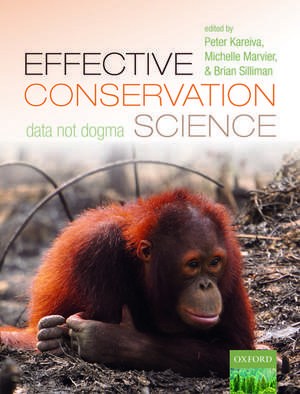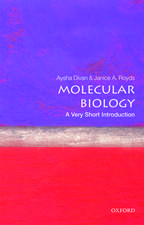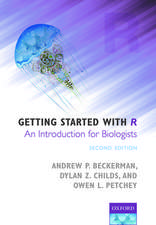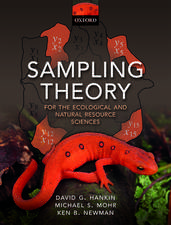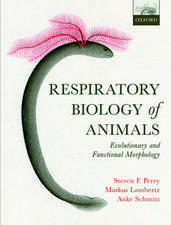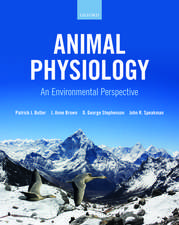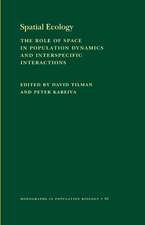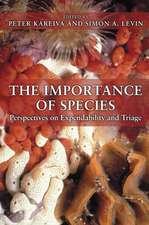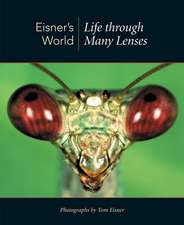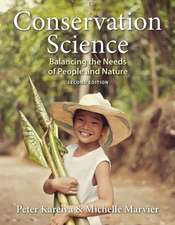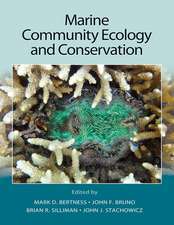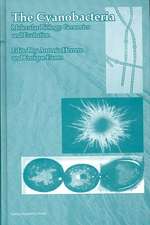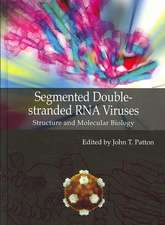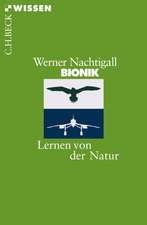Effective Conservation Science: Data Not Dogma
Editat de Peter Kareiva, Michelle Marvier, Brian Sillimanen Limba Engleză Paperback – 12 oct 2017
| Toate formatele și edițiile | Preț | Express |
|---|---|---|
| Paperback (1) | 346.25 lei 31-37 zile | |
| OUP OXFORD – 12 oct 2017 | 346.25 lei 31-37 zile | |
| Hardback (1) | 644.48 lei 31-37 zile | |
| OUP OXFORD – 12 oct 2017 | 644.48 lei 31-37 zile |
Preț: 346.25 lei
Preț vechi: 394.62 lei
-12% Nou
Puncte Express: 519
Preț estimativ în valută:
66.26€ • 69.35$ • 55.15£
66.26€ • 69.35$ • 55.15£
Carte tipărită la comandă
Livrare economică 20-26 martie
Preluare comenzi: 021 569.72.76
Specificații
ISBN-13: 9780198808985
ISBN-10: 0198808984
Pagini: 208
Ilustrații: 45 illustrations
Dimensiuni: 206 x 247 x 11 mm
Greutate: 0.48 kg
Editura: OUP OXFORD
Colecția OUP Oxford
Locul publicării:Oxford, United Kingdom
ISBN-10: 0198808984
Pagini: 208
Ilustrații: 45 illustrations
Dimensiuni: 206 x 247 x 11 mm
Greutate: 0.48 kg
Editura: OUP OXFORD
Colecția OUP Oxford
Locul publicării:Oxford, United Kingdom
Recenzii
This collection does an excellent job of challenging some of the ideas that have established themselves in our belief systems and popular science.
[Effective conservation science] can serve as a compilation of representative criticisms in this high-profile and controversial field of research. Recommended.
The book tackles the philosophical and scientific issues that have divided the field of conservation biology in recent years.
[Effective conservation science] can serve as a compilation of representative criticisms in this high-profile and controversial field of research. Recommended.
The book tackles the philosophical and scientific issues that have divided the field of conservation biology in recent years.
Notă biografică
Peter Kareiva has taught at multiple universities (including Brown, University of Washington, UC Santa Barbara, Stanford, UCLA, Santa Clara University and University of Virginia). He has worked as a private consultant and led a NOAA research group at the Northwest Fisheries Science Center on Conservation Biology. He spent over ten years as a Lead, and then Chief Scientist at The Nature Conservancy. He is a member of the National Academy of Science and the American Academy of Arts and Sciences. With Michelle Marvier he has co-authored a textbook in conservation science. He now directs an interdisciplinary program in Environmental Science at UCLA, where an emphasis is placed on the importance of narratives in promoting environmental values.Michelle Marvier is a professor of Environmental Studies and Sciences at Santa Clara University. She received her Ph.D. from the University of California, Santa Cruz and was a NSF postdoctoral fellow at the University of Washington. Michelle has worked for NOAA Fisheries on salmon conservation and has applied evidence-based risk analysis to understand the environmental impacts of genetically engineered crops. She has published over 40 articles, and she currently serves on the editorial board of Frontiers in Ecology and the Environment. With Peter Kareiva, Michelle coauthored the textbook, Conservation Science: Balancing the Needs of People and Nature.Brian Silliman is the Rachel Carson Associate Professor of Marine Conservation Biology at Duke University. He was named a Smith Conservation Fellow in 2004, a Visiting Professor with the Royal Netherlands Society of Sciences in 2011, and fellow of the American Association for the Advancement of Science in 2016. He has also received a Young Investigator Award from the American Society of Naturalists (2006) and NSF Career Grant Award (2011). Dr. Silliman has published two co-edited books and over 130 journal articles. His teaching and research are focused on community ecology, conservation and restoration, and ecological consequences of positive interactions.
